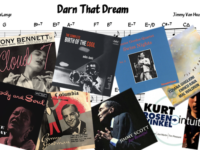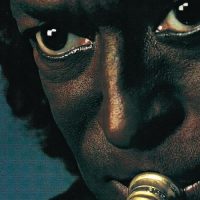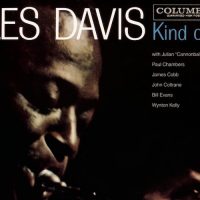Wynton Marsalis’ The Magic Hour arrived on March 9, 2004 as that sweetest of swinging homecomings – like time spent laughing with old friends on a front porch.
We have Marsalis returning belatedly to small-band work, where he once sparked the kind of mainstream interest in a jazz trumpeter enjoyed long ago by the likes of Louis Armstrong and Miles Davis. We have Marsalis again beside music industry veteran Bruce Lundvall, who signed Wynton to his very first record deal in 1980.
We have Marsalis finally returning to the driving rhythms and lyrical whimsy that marked his best early work, before he won Pulitzers and made records with 199 other musicians. Really: One hundred and 99 other folks. That was “All Rise,” an extended classical composition from 2002 for big band, gospel choir and symphony orchestra.
“‘All Rise’ was such a huge piece,” Marsalis said back then. “I wanted to produce my next recording with a smaller group. I wanted to restate my basic love of jazz music in a quartet format.”
After 20 years on Columbia, Lundvall lured Marsalis to the Blue Note label, a bastion of earthy joy and fiery brilliance in the 1950s and ’60s. In keeping, the trumpeter presented himself not as concert master or Ellingtonian composer, but as the impish youngster we sometimes saw when Bruce Lundvall originally inked him.
In between, Wynton Marsalis occasionally calcified into a prematurely aged figure, the 30-year-old grousing about how things had gone so wrong in music. He hated the avant-garde movement of jazz after 1965, despised 1970s fusion. But in Marsalis’ honorable quest to save the older jazz that he so clearly loved, he sometimes came off as a shrill and humorless pitchman – and a suddenly retrograde performer.
The truth is, Wynton Marsalis only resembled Miles Davis through imitation. (Well, he was also named after Davis’ one-time pianist, Wynton Kelly.) Marsalis’ legacy in jazz more closely resembles that of Freddie Hubbard, a talented musician who popularized the more challenging work of others.
So The Magic Hour, in the end, powerfully illustrated that Marsalis was still not the innovator he hoped to be. That role was firmly grasped here in the embryonic yet powerful pianistic genius of Eric Lewis. But it was great to hear Marsalis let fly with refreshing abandon on bright, light tunes like “Big Fat Hen.”
Meanwhile, on “Free to Be,” he exhaled the expected quirky Miles-ish riff, but – more thrillingly – also ripped through dizzying Gillespie-inspired runs. And in so doing, Marsalis – with his tie loosened – actually gained the stature he once so clearly craved. This free-wheeling effort, more than any of his other more recent albums at the time, underscored just what Marsalis’ old-school prowess could actually add to the modern jazz landscape.
That’s because a galloping joy like The Magic Hour acknowledged finally that this music is more than classroom mythology – more than a still photograph of smoky ringlets rising above long-dead horn players as they wheeze their sorrows. No, the old stuff wasn’t just a standup bass with an uptight attitude. It was funky and fun, too – something that might speak to future generations.
And that was never more so than at Blue Note – the place where we once chowed down with Jimmy Smith back at the Chicken Shack. Where Jackie McLean was once “Swing, Swang, Swingin.’” That same sense of head-wagging jubilation was powerfully recalled both on “Shipping” – with its shimmering imagery of children at play – and in this Marsalis album’s very name.
“For kids,” Marsalis added, “the magic hour is the one hour before they go to bed. For parents, it’s the one hour after the kids go to sleep.” For jazz fans, it’s that first hour spent with this unjustly forgotten 2004 release and a reborn Wynton Marsalis.
- ‘Together Through Life’ Remains One of Bob Dylan’s Most Low Key, Organic LPs - April 15, 2024
- Why Joe Jackson’s Retro ‘Body and Soul’ Said So Much About His Future - March 14, 2024
- How Rudolph Stole the Show on ‘The Temptations Christmas Card’ - December 25, 2023




